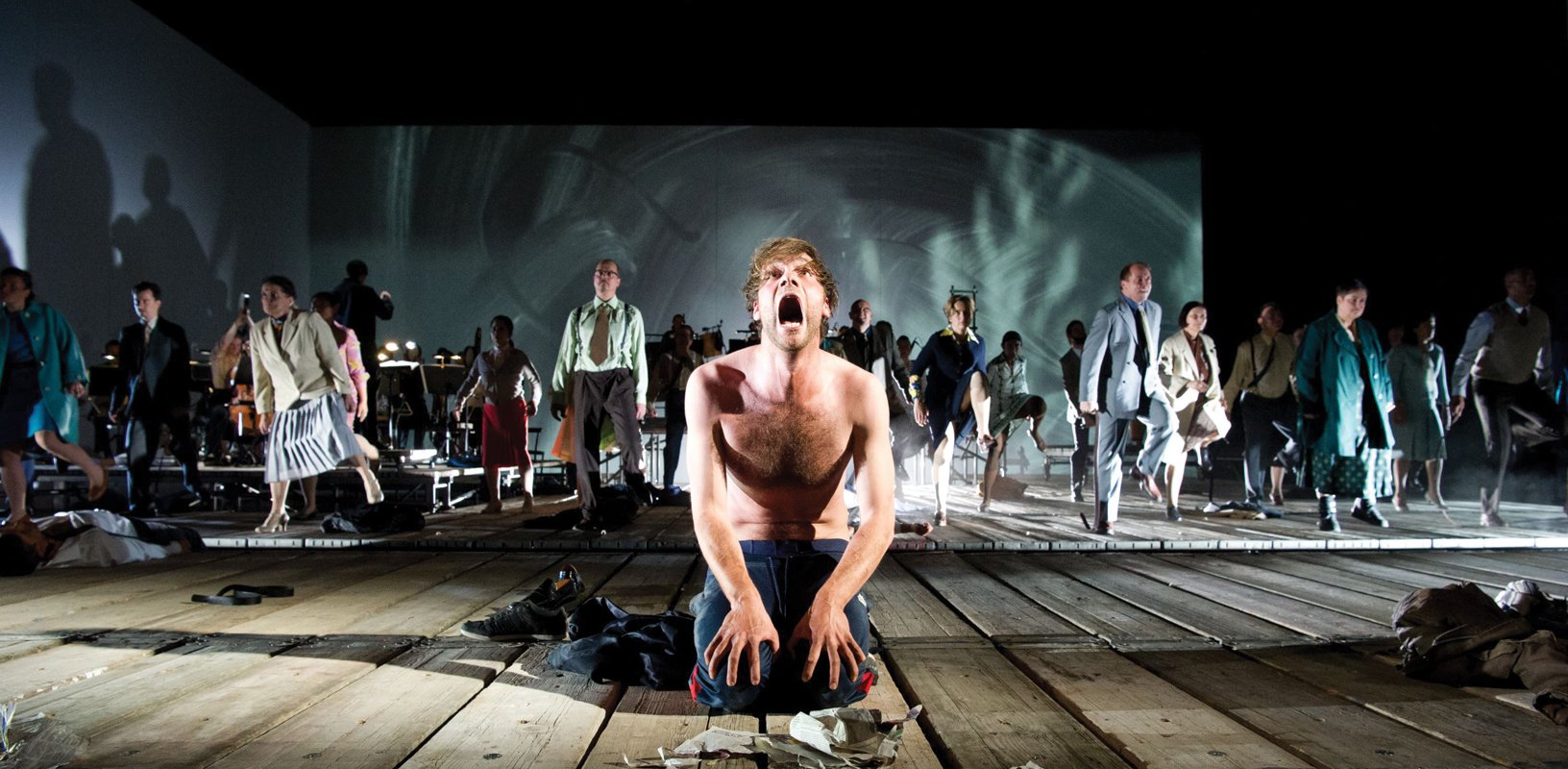Xenakis: Bieito stages classic Oresteia in Basel

Xenakis's classic music theatre work Oresteia has been staged in Basel in a powerful new theatrical version by director Calixto Bieito.
The controversial Spanish director Calixto Bieito unveiled his new stage version of Iannis Xenakis’s Oresteia at the Theater Basel in March. This classic music theatre work morphed through a sequence of versions in the composer’s lifetime, and was here presented in his final version for baritone, chorus and chamber ensemble combined with actors speaking lines from Aeschylus’s play in modern vernacular, with a running time of 90 minutes.
With its use of microtones, glissandi and extreme registers Xenakis’s writing for chamber ensemble has a stark ritualistic power, fronted by solo cello and a pair of percussionists. Both the chorus, declaiming in Greek, and the orchestra amplify the ancient rhythms with additional percussion. The male soloist, Holger Falk, provided two scenes of extraordinary virtuosity, telling of the soothsayer Cassandra and of the goddess Athena sitting in judgement upon Orestes, requiring wild leaps from normal register into falsetto. The action was played out in front of the Basel Sinfonietta under Franck Ollu with video projections linking the drama to contemporary events.
In an interview in the Badische Zeitung Bieito described Oresteia as "quite simply a magnificent piece. It comes from a man who was involved in a war, that is, in a civil war… so he stands side by side with Bernd Alois Zimmermann and György Ligeti, both of whom lived through the war. They were able to describe the trauma which war leaves in its wake like nobody else. I believe that this legacy is so important because of this, and it is good that we can still work with it.
"Xenakis loved music and mathematics greatly, and used both in the cause of peace. And as far as Aeschylus is concerned: I think this text contains everything that still has meaning today. The modern family comes to life in it again, the relationships between people and the violence. In my opinion, Xenakis created an impressive combination of very important things, with the poetry of Aeschylus, his own music and the themes which they talk about, the hatred, the love, the compassion, the aggression and what democracy means today. It is a text for eternity."
"Xenakis was first and foremost interested in the ancient Greek metres, which do not take into account stressed and unstressed syllables as today… Even stranger is the archaic, merciless tone of his music. Distant from any more restrained emotion, fear and horror are elementally experienced through dark and threatening sounds."
Suddeutsche Zeitung
"…a single cello is positioned right in the middle of the action on the stage, while a three-piece percussion ensemble forms a musical counterpart to this on another rostrum. The instrumental sounds of the evening are sharp, direct and brittle. Glissandi tear away the firm ground from under the feet, harsh drumbeats strengthen the emotions..."
Die Deutsche Bühne
"Xenakis’s material here was completely absorbing throughout, contributing most effectively to the storytelling. Great and gripping music-theatre of extraordinary power… a deeply moving theatrical poetic masterpiece."
Opera Now
> Further information on Work: Oresteia
Photo: Sandra Then
